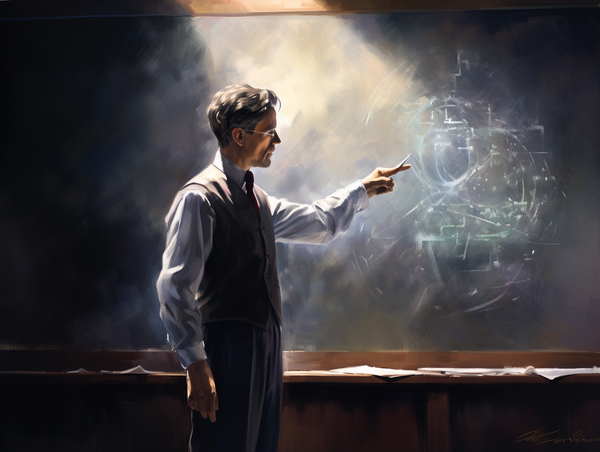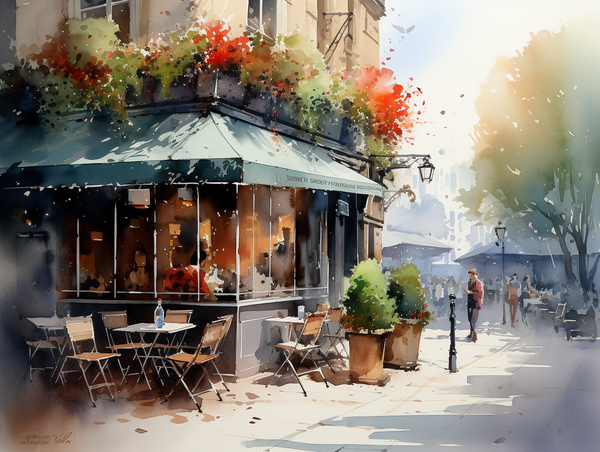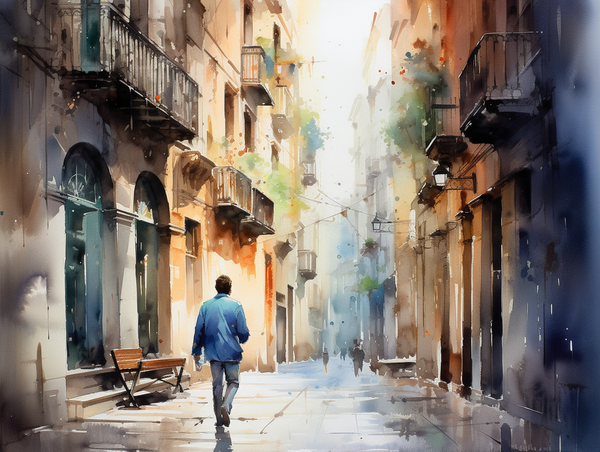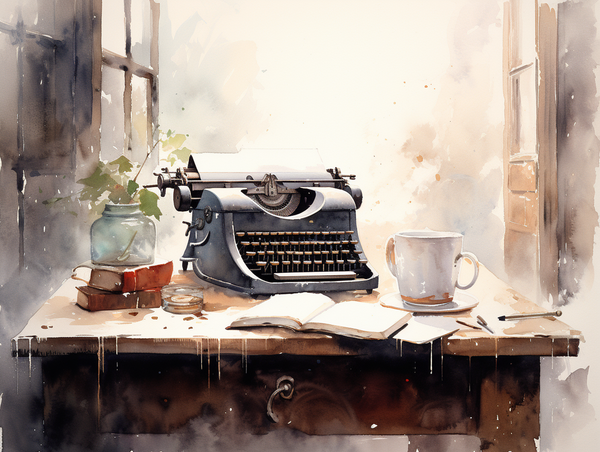The Monastery of Used Bookstores
They're time machines. Confession booths. Repositories of the collective unconscious.
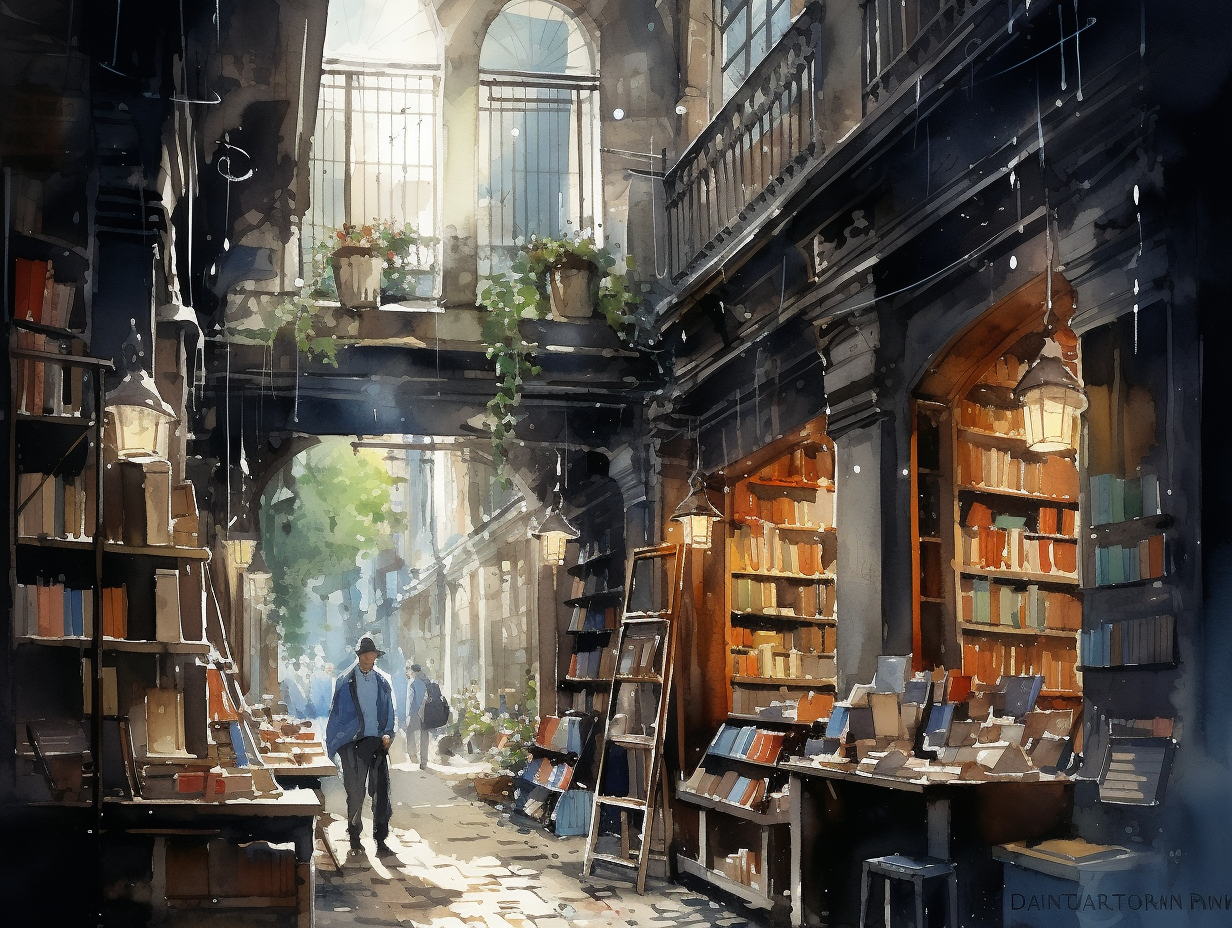
The dust motes dance in the afternoon light like tiny prophets.
I push open the door — heavy, wooden, resistant in the way of things that guard secrets — and the world shifts. Outside was Tuesday. In here, time pools in corners and refuses to flow properly.
You know this feeling. You've been here before, in some incarnation of this same sacred disorder. Maybe it was the one on Chestnut Street with the resident tabby who judges your taste in poetry. Maybe the basement shop where philosophy mingles promiscuously with self-help.
They're all the same church, different pews.
My body knows what to do here. Shoulders drop. Breathing slows. The urgent email I was composing in my head dissolves like sugar in rain.
The first rule of used bookstores: you cannot conquer them. They must be surrendered to. I learned this the hard way, arriving once with a list, efficient and focused. Three hours later I emerged with a 1962 guide to beekeeping and a biography of a chess player I'd never heard of. The store had won, as it always does.
Today I drift toward Fiction, but Fiction is a lie here. Borges leans against a cookbook. Someone has shelved Moby Dick with the maritime navigation guides — which, when you think about it, makes a certain kind of sense. The categories bleed into each other like watercolours in rain.
I watch a young man discover Virginia Woolf. He opens To the Lighthouse, reads a passage, and his face does that thing faces do when a door opens in the mind. He'll buy it. He'll carry it home like a bird cupped in his palms. His life will fork in this moment, though he doesn't know it yet.
The owner presides from behind towers of new acquisitions. She's pricing books with a pencil, making those small calculations: condition times rarity divided by how much she paid the widow who brought them in. Each pencil mark is a small prayer for the book's next life.
In the back room — there's always a back room, darker, damper, where the truly forgotten volumes wait — I find myself kneeling. Not in worship, exactly, but in something adjacent. The bottom shelves require genuflection. Down here live the orphans: outdated textbooks, multiple copies of bestsellers no one remembers, journals of people who thought their thoughts worth binding.
My fingers find a spine that feels different. Cloth, not paper. Old. I extract it carefully — The Practice of the Presence of God, 1958 edition. Inside, an inscription: "For Helen, who already knows. Love, M." The ink has faded to brown. Helen is dust. M is dust. But here's their love, still breathing between pages.
This is what we're really looking for, isn't it? Not books but evidence. Proof that others have wondered what we wonder, feared what we fear, found beauty where we find beauty.
A woman beside me in Poetry pulls book after book from the shelf, reads a single poem from each, returns it. She's not shopping. She's having conversations with the dead. I recognise the hunger in her movements — not for ownership but for contact. For the electric moment when someone else's words become the exact shape of your own unspoken truth.
Time behaves strangely here. I check my phone — surely hours have passed. Twenty minutes. I put the phone away. It has no power in this place. Its urgencies seem suddenly absurd, like trying to explain Twitter to Thomas Merton.
In the Philosophy section, someone has left a note tucked inside Marcus Aurelius: "This book saved my life. Pass it on." I buy it immediately. Not because I need saving — not today — but because the note transforms it into something else. A talisman. A responsibility.
The store cat — there's always a cat, guardian of this particular threshold between worlds — weaves between my legs. She knows I'm no tourist. Tourists move too fast, laugh too loud, take photos of the "quirky chaos." The initiated move slowly, speak in whispers, understand that this disorder has its own deep logic.
At the counter, I place my selections down gently. Today's harvest: the Marcus Aurelius with its hidden message, a water-stained book of Mary Oliver poems, and yes, improbably, a 1973 guide to mushroom identification. The owner looks at them, looks at me, nods once. No small talk. We understand each other. This is a transaction, yes, but also a ritual. Money changes hands, but what's really being exchanged is harder to name.
Outside again, the world seems both too bright and too fast. I clutch my paper bag like a life preserver. Inside are not just books but pieces of time, fragments of other lives that have agreed to come home with me.
You know what happens next. The books will join the others on your shelves. Some you'll read immediately. Others will wait years for their moment. One day you'll pull that mushroom guide down during a different season of your life, and it will be exactly what you need.
This is the miracle of used bookstores. They're time machines. Confession booths. Repositories of the collective unconscious. We go not because we need more books. God knows we have enough books. We go because we need to remember that we're not alone in being human. We go because the algorithm hasn't learned to replicate serendipity. We go because our souls require the particular silence that lives between the end of one story and the beginning of another.
The dust settles. The door closes. Inside, the books wait with the patience of saints for the next seeker to arrive.
And they will arrive. They always do.
Drawn by the same nameless hunger that brought you here today.

